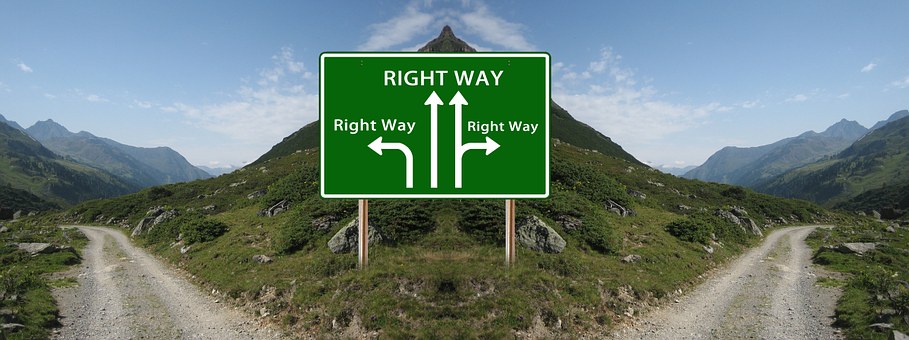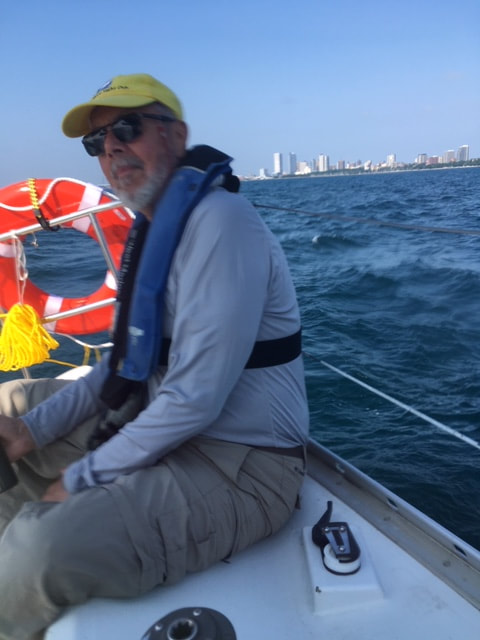It feels like the world is on the verge of a significant paradigm shift; one that will shake the foundations of all that we know.
When major institutions become rigid, when they are propped up with artificial support so they might remain standing, but can barely function – it is then that one should be on the lookout for paradigm shifts. That certainly sounds like the world we’re living in today. Our historical allies are now our enemies. Our former enemies are now our friends. The effectiveness and legitimacy of our government institutions is called into question. Our elections are suspect. The American public has voiced its support on issue after issue such as gun control, immigration, minimum wage, health care, environmental sustainability, climate change and more – but yet our government continues to pass legislation ignoring the voice of the people and in support of special interests. Inequality has grown, and wages have stagnated while at the same time corporations have garnered record profits and a lucky few families have become opulently wealthy. Thomas Friedman, a New York Times columnists recently wrote a fascinating and insightful article, asking the rhetorical question: Why are so many political parties blowing up? Friedman writes that here in the USA and across the world, people know that the system is out of balance, but they don’t know what will fix it. And so, they are voting for dramatic change. Any change. One need only to look at recent elections in America, Mexico, Italy, France and Germany- to name a few examples. The three issues driving these changes, according to Friedman are: Climate change, a growing geo-political economic interdependence and technology in the workplace that reduces the need for workers. These changes are creating winners and losers; countries that are maintaining growth and order and those that are not. And, people are fleeing from those countries where growth is stagnant, and disorder is on the rise. In these countries, according to the article “there is not enough order, sustainable land or industry to hold people” resulting in staggering 68 million migrants across the globe, which includes 25 million refugees. In summary, the world is changing beyond the capacity of our current political infrastructure to keep up. People are suffering. They are frustrated and are either voting for change or they are voting with their feet and moving to countries perceived to provide more opportunity and more order. We are witnessing a profound global shift that will only worsen if we are not thoughtful in our long-term response. I want to talk about a framework for making decisions in uncertain times – both personally and as a country. This will require some of you to bear with me. I hope you will. What if we crafted a decision-making protocol that fostered a “win-win-win” ideology where every critical decision is weighed on how it impacts others, how it impacts ourselves and how it aligns with our values. Check out the matrix at the end of this article for an example. The Christian gospel tells us that the greatest commandment is to love God with all your might and to love your neighbor as yourself. The Jewish bible provides similar teaching. There are three aspects to these tenets: 1) Love God, 2) Love your Neighbor, and 3) Love Yourself. For this to work, each decision will need to satisfy all three criteria. It’s like baking a cake with five ingredients. If you leave out any ingredient – the cake falls flat. Let me explain: Love God – The majority of people on this earth believe in some type of Divine energy or presence. From that belief flows a set of near universal principles such as the “golden rule”, or be kind to strangers, or care for the poor or protect the environment. We should use our belief in God, or our belief in these common principles to guide us. As a Quaker, I ask myself “what does God ask of me” in this decision or in this situation. Or said differently – what do our common values say about what we should do? For example, what do our common values say about rolling back the protections for pre-existing medical conditions? Or about separating children from their parents? Or about spending $600 billion annually on military defense? Love of Neighbor – This should be an easy one, but it isn’t. We are told – across religious disciplines in multiple ways - that we should “love our neighbor as ourselves”. From a policy perspective this would translate to: Don’t create policy for anyone that will treat them unjustly. The difficulty may be in defining “neighbor” correctly. Immigrants, poor people, people with no health insurance are our neighbors. But so too are taxpayers. We need to consider both. Remember, this is a “win-win-win” exercise. Who is the neighbor we are helping when dealing with a parent who shouldn’t be driving? Is it our parent, or the people s/he may kill on the road? Or both? Defining our “neighbor” in this exercise is a critical step. This is why a commitment to the win-win-win principle of this process is so important. Love of Self – Now, this isn’t about self-adulation. This is about recognizing that we are all children of God and we should treat ourselves with the same love and respect that we provide to our neighbors. Focusing our deportation efforts on immigrants who have criminal records is one example of a policy that emulates love of self. We want to honor our immigrant neighbors, but we also want to protect ourselves from crime. A policy that tries to strike that balance between fair immigration standards and ones that screen out those with existing criminal records seems prudent. I have been using this triple love rubric to guide my daily decisions for a while now, and, it has made a difference. In more than one occasion I changed what I was going to do because it didn’t fit with the win-win-win criteria. I ask myself three questions: 1) How does this bring me closer to God? 2) How does this help my neighbor? 3) How does this honor myself? I encourage you to try it. The world could use some love-love-love right now.
0 Comments
Your comment will be posted after it is approved.
Leave a Reply. |
AuthorMike Soika has been a community activist for more than 30 years working on issues of social and economic justice. His work for justice is anchored by his spiritual formation first as a Catholic and now as a Quaker. Pre 2018 Archives
|



 RSS Feed
RSS Feed
